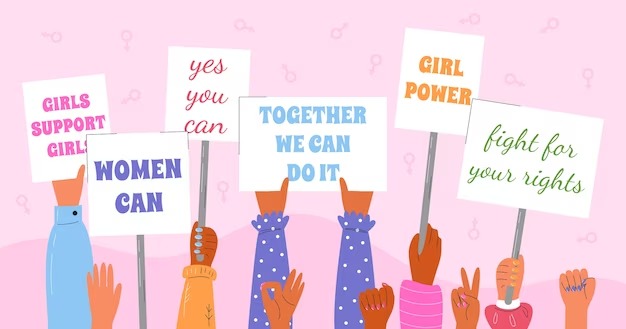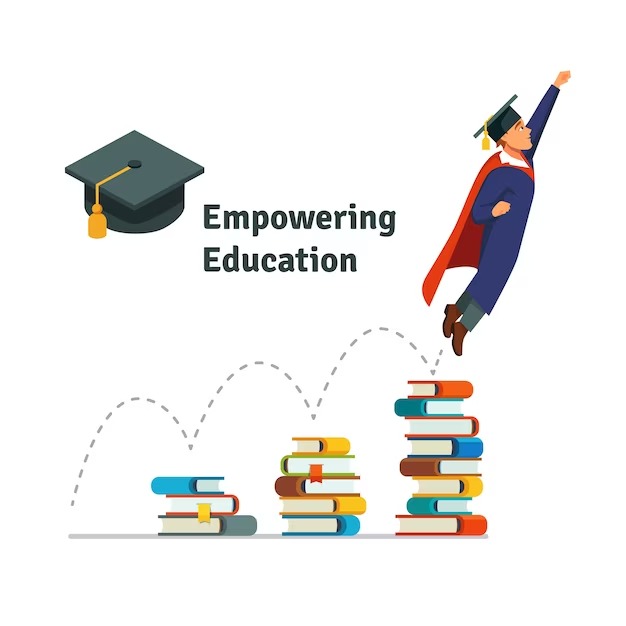



In today's world, the significance of women empowerment cannot be understated. For centuries, women have faced gender inequality and discrimination, limiting their opportunities and stifling their potential. However, times are changing, and it is crucial to understand the historical context of gender inequality to fully appreciate the need for women empowerment.
Women empowerment can be defined as the process of enabling women to have control over their lives and make informed decisions. At its core, it is about promoting gender equality and challenging societal norms that limit women's freedom and agency. Empowerment encompasses various aspects, including economic, social, and political dimensions.
When women are empowered, economies flourish and societies prosper. Women's involvement in various sectors has proven to be transformative, leading to economic growth and development. By providing opportunities for women to participate in the workforce, entrepreneurship, and leadership positions, we unlock their potential and pave the way for social development and improved well-being for all.
Education plays a fundamental role in empowering women. Access to quality education equips women with knowledge, skills, and confidence, enabling them to challenge traditional gender roles and break free from societal constraints. However, challenges persist, particularly in promoting girls' education in marginalized communities. Investing in inclusive education and addressing barriers such as child marriage and gender-based violence are essential steps towards promoting women empowerment.

In traditionally male-dominated fields, women have been breaking barriers and challenging stereotypes. Achieving gender equality in the corporate world entails creating equal opportunities for women, eradicating pay gaps, and promoting inclusive work environments that value diversity. By dismantling the glass ceiling and fostering a supportive culture, we can build a more equitable society where women can thrive and contribute their unique perspectives.
The underrepresentation of women in politics and decision-making roles is a persistent challenge worldwide. Increasing women's political participation is not only a matter of fairness but also essential for effective governance and democratic processes. Strategies such as quotas, legislative reforms, and political empowerment programs can help bridge the gender gap in political leadership, ensuring that women's voices are heard and considered.
Access to healthcare is a fundamental right that both contributes to and is influenced by women empowerment. Addressing women's health issues, including reproductive rights, maternal healthcare, and gender-specific diseases, is crucial in reducing disparities and empowering women to take control of their well-being. Moreover, by prioritizing gender-responsive healthcare policies and addressing societal norms that perpetuate inequalities, we can advance women empowerment on a broader scale.
Cultural norms and practices often act as barriers to women's empowerment. Patriarchal systems, gender roles, and harmful traditions limit women's opportunities and perpetuate gender inequality. By promoting gender equality through cultural change, challenging harmful practices, and educating communities on the importance of women's rights, we can create a more inclusive and empowering society for all.
While progress has been made, women continue to face challenges in accessing leadership roles. Inspiring examples of women leaders who have successfully broken through barriers serve as beacons of hope and inspiration. However, addressing the barriers women face in leadership requires systemic changes, including mentorship programs, leadership training, and creating supportive environments that allow women to thrive.
Women's empowerment and poverty reduction go hand in hand. Studies have shown that empowering women economically leads to positive social and economic outcomes for families and communities. Microfinance initiatives and entrepreneurship opportunities for women not only provide pathways to financial independence but also contribute to economic growth and poverty alleviation on a larger scale.
Gender-based violence remains a pervasive issue that hinders women's empowerment. Addressing violence against women is crucial in creating a safe environment where they can exercise their rights and make choices free from fear. Strategies such as legal reforms, awareness campaigns, and support services for survivors are vital in combating gender-based violence and fostering an enabling environment for women empowerment.
Technology has the power to revolutionize women's empowerment. It provides avenues for education, economic opportunities, and activism. However, the gender digital divide persists, preventing many women from benefiting from technological advancements. Bridging this divide requires increasing access to technology, supporting digital literacy programs, and designing products and services that cater to the needs of diverse women.

Women in developing countries face unique challenges that demand targeted interventions. Issues such as poverty, limited access to education, healthcare, and economic opportunities disproportionately affect women in these contexts. By implementing holistic approaches that address these challenges, promoting gender equality, and supporting grassroots initiatives, we can empower women and catalyze social change.
It is essential to recognize the intersection of gender with other aspects of identity, such as race, class, and ethnicity. Women from diverse backgrounds experience intersecting forms of discrimination and face unique challenges. Empowering women from all walks of life requires adopting an inclusive approach that acknowledges and addresses the complexities of their experiences.
Women's empowerment and climate action are inherently linked. Women play crucial roles as agents of change in mitigating and adapting to climate change. Their knowledge, skills, and perspectives are invaluable in developing sustainable solutions. Ensuring gender-responsive policies and including women in decision-making processes is essential for achieving environmental sustainability and addressing the disproportionate impacts of climate change on women.
Men have a pivotal role to play in promoting women's empowerment. By becoming allies and challenging harmful norms and stereotypes, men contribute to creating an inclusive society where gender equality can flourish. Redefining masculinity to support gender equality is crucial in dismantling patriarchal structures and fostering a culture of mutual respect and collaboration.
Women's empowerment is indivisible from human rights. Recognizing and protecting women's rights is fundamental to ensuring their empowerment. Legal frameworks that promote gender equality, eliminate discrimination and violence, and guarantee equal opportunities for women are essential in creating an enabling environment for women's empowerment to thrive.
The representation of women in media and entertainment is a powerful tool for empowerment. Promoting diverse voices, breaking stereotypes, and challenging prevailing narratives are instrumental in shaping societal perceptions and attitudes towards women. By embracing inclusivity, supporting women-led storytelling, and advocating for equal representation, we can reshape the media landscape and foster a culture of empowerment.

Numerous global initiatives and organizations are dedicated to promoting women's empowerment worldwide. These include the United Nations Women, the Global Women's Empowerment Network, and local grassroots organizations. Through partnerships and collaborations, these initiatives work towards lasting change by advocating for policy reforms, implementing programs, and providing support to empower women at all levels.
In summary, women empowerment is a pressing issue that continues to shape the world. By understanding the historical context of gender inequality, recognizing the multidimensional aspects of empowerment, and addressing the challenges women face, we can create a more equitable and inclusive society. Women empowerment matters because it benefits not just women but also their communities, economies, and future generations.
Women empowerment refers to the process of enabling women to have control over their lives, make informed decisions, and challenge societal norms that limit their freedom and agency.
Women empowerment is crucial for society as it leads to economic growth, social development, and improved well-being. It promotes gender equality, challenges discriminatory practices, and ensures that women's voices are heard and considered in decision-making processes.
Education plays a fundamental role in empowering women by equipping them with knowledge, skills, and confidence. It enables them to challenge traditional gender roles, break free from societal constraints, and make informed choices about their lives.
Many initiatives address gender-based violence, including legal reforms, awareness campaigns, and support services for survivors. These initiatives aim to combat gender-based violence and create a safe environment that empowers women.
Technology has the potential to bridge the gender gap in empowerment by providing avenues for education, economic opportunities, and activism. Increasing access to technology, supporting digital literacy programs, and designing products and services that cater to the needs of diverse women are crucial steps.
Women's economic empowerment leads to positive social and economic outcomes, such as poverty reduction, improved education, and better health outcomes for families and communities. It also contributes to economic growth and development on a larger scale.
Note: Additional FAQs can be included based on specific areas of interest.